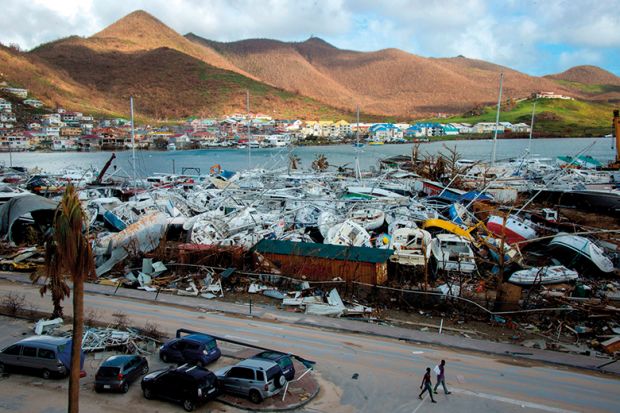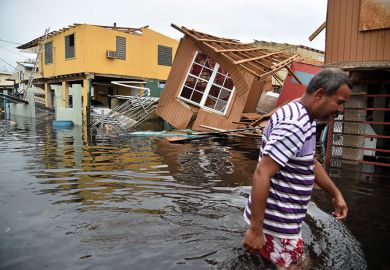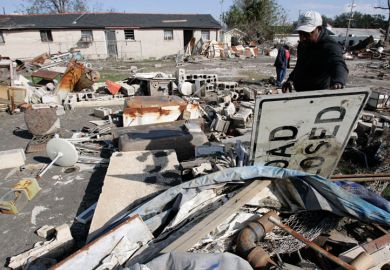The University of the West Indies is no stranger to natural disasters, with hurricanes a common feature of the Caribbean. But the institution, which has campuses and online learning centres across 17 Caribbean countries and territories, suffered damage on an unprecedented scale when Hurricanes Irma and Maria swept through the region in quick succession last year.
Jeremy Collymore, honorary research fellow and resilience consultant and adviser at the university, said that the disasters caused up to $20 million (£15 million) of building damage, while the institution lost a further $6 million as a result of class disruption.
But he hopes that a new network of universities in the Pacific and the Caribbean will help “build a culture of resilience” to such disasters in the future within higher education institutions and their wider communities.
The Commonwealth Climate Resilience Network, which was developed by the Association of Commonwealth Universities, aims to enable universities to pool resources and share expertise and experience on coping with climate change and natural disasters.
Alongside The University of the West Indies, core members include Fiji National University and the University of the South Pacific, also in Fiji, which was hit by Cyclone Winston, the most intense tropical cyclone in the southern hemisphere on record, in 2016.
But Alex Wright, senior policy officer at the ACU, which has more than 500 member institutions, said that the network would “draw on [the ACU’s] wide membership across all regions of the Commonwealth to further strengthen the network and to ensure its work complements existing initiatives”.
Nigel Healey, vice-chancellor of Fiji National University, which is constructing all new buildings to be environmentally friendly and compliant with the latest cyclone codes, said that many of the small island states in the Pacific and the Caribbean are “increasingly vulnerable to rising sea levels and severe weather events caused by climate change”.
But “by pooling our expertise and experience”, universities in these areas “can improve their emergency planning and develop their teaching and research to make their communities more resilient”.
He said that the network will fund international mobility for academic and support staff and students, aimed at “learning from best practice in terms of dealing with extreme weather events and quickly restoring normal services, as well as developing new courses aimed at adapting to climate change and undertaking research to understand the impact of climate change on island communities”.
“Practically, where we could benefit from the new scholarship fund would be by sending our emergency management team to institutions [such as] the University of Canterbury [in New Zealand], which has a very advanced emergency management policy and infrastructure to learn about international best practice,” he added.
“We would like to bring experts in emergency planning and business continuity to Fiji to review our systems and preparedness. We would also like to work with other universities to study the impact of rising sea levels on island communities, and consider the challenges faced by relocating threatened communities from their traditional lands.”
Register to continue
Why register?
- Registration is free and only takes a moment
- Once registered, you can read 3 articles a month
- Sign up for our newsletter
Subscribe
Or subscribe for unlimited access to:
- Unlimited access to news, views, insights & reviews
- Digital editions
- Digital access to THE’s university and college rankings analysis
Already registered or a current subscriber?








